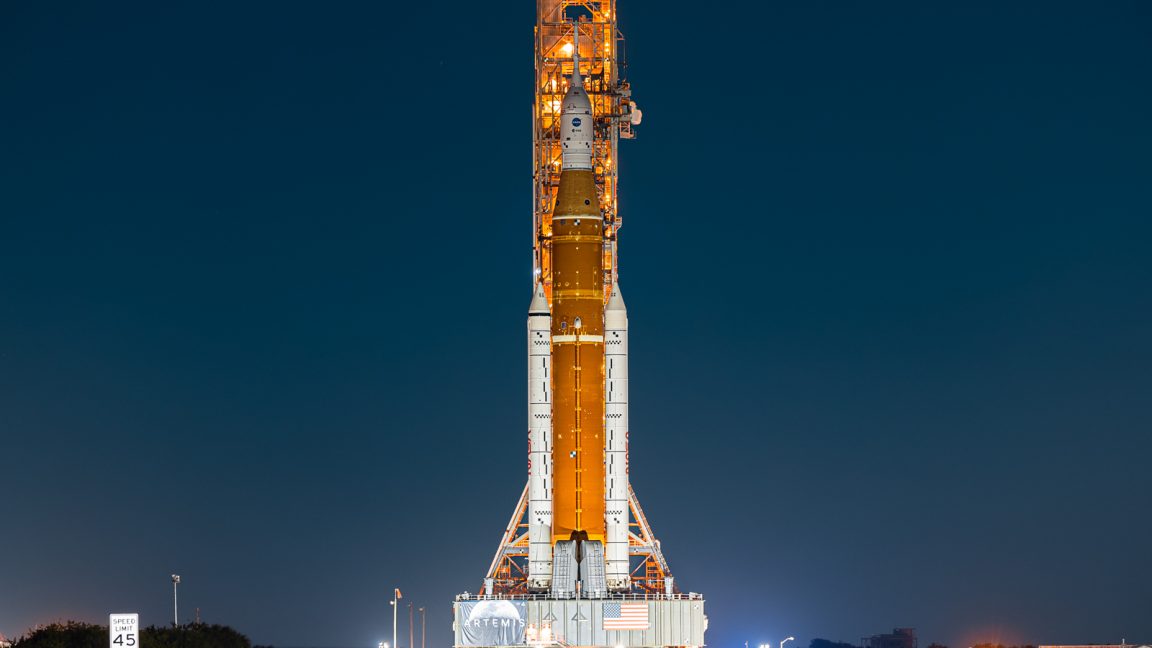
Boeing has informed its employees that NASA may cancel SLS contracts
arstechnica.com
$L$ Boeing has informed its employees that NASA may cancel SLS contracts The White House has not made a final decision yet on the large rocket. Eric Berger Feb 7, 2025 5:07 pm | 4 The Space Launch System rocket is seen rolling toward its launch pad, LC-39B, in Florida. Credit: Trevor Mahlmann The Space Launch System rocket is seen rolling toward its launch pad, LC-39B, in Florida. Credit: Trevor Mahlmann Story textSizeSmallStandardLargeWidth *StandardWideLinksStandardOrange* Subscribers only Learn moreThe primary contractor for the Space Launch System rocket, Boeing, is preparing for the possibility that NASA cancels the long-running program.On Friday, with less than an hour's notice, David Dutcher, Boeing's vice president and program manager for the SLS rocket, scheduled an all-hands meeting for the approximately 800 employees working on the program. The apparently scripted meeting lasted just six minutes, and Dutcher didn't take questions.During his remarks, Dutcher said Boeing's contracts for the rocket could end in March and that the company was preparing for layoffs in case the contracts with the space agency were not renewed. "Cold and scripted" is how one person described Dutcher's demeanor.Giving a 60-day noticeThe aerospace company, which is the primary contractor for the rocket's large core stage, issued the notifications as part of the Worker Adjustment and Retraining Notification (or WARN) Act, which requires US employers with 100 or more full-time employees to provide a 60-day notice in advance of mass layoffs or plant closings."To align with revisions to the Artemis program and cost expectations, today we informed our Space Launch Systems team of the potential for approximately 400 fewer positions by April 2025," a Boeing spokesperson told Ars. "This will require 60-day notices of involuntary layoff be issued to impacted employees in coming weeks, in accordance with the Worker Adjustment and Retraining Notification Act. We are working with our customer and seeking opportunities to redeploy employees across our company to minimize job losses and retain our talented teammates."The timing of Friday's hastily called meeting aligns with the anticipated release of President Trump's budget proposal for fiscal year 2026. This may not be an entire plan but rather a "skinny" budget that lays out a wish list of spending requests for Congress and some basic economic projections. Congress does not have to act on Trump's budget priorities.Multiple sources said there has been a healthy debate within the White House and senior leadership at NASA, including active administrator Janet Petro, about the future of the SLS rocket and the Artemis Moon program. Some commercial space advocates have been pressing hard to cancel the rocket outright. Petro has been urging the White House to allow NASA to fly the Artemis II and Artemis III missions using the initial version of the SLS rocket before the program is canceled.Critics of the large and expensive rocketa single launch costs in excess of $2 billion, exclusive of any payloads or the cost of ground systemssay NASA should cut its losses. Keeping the SLS rocket program around for the first lunar landing would actually bog down progress, these critics say, because large contractors such as Boeing would be incentivized to slow down work and drag out funding with their cost-plus contracts for as long as possible.Long-delayed and expensiveFriday's all-hands meeting indicates that Boeing executives believe there is at least the possibility that the Trump White House will propose ending the SLS rocket as part of its budget proposal in March.The US Congress, in concert with senior leaders at NASA, directed the space agency to develop the SLS rocket in 2011. Built to a significant degree from components of the space shuttle, including its main engines and side-mounted boosters, the SLS rocket was initially supposed to launch by the end of 2016. It did not make its debut flight until the end of 2022.NASA has spent approximately $3 billion a year developing the rocket and its ground systems over the program's lifetime. While handing out guaranteed contracts to Boeing, Northrop Grumman, Aerojet, and other contractors, the government's rocket-building enterprise has been superseded by the private industry. SpaceX has developed two heavy lift rockets in the last decade, and Blue Origin just launched its own, with the New Glenn booster. Each of these rockets is at least partially reusable and flies at less than one-tenth the cost of the SLS rocket.Eric BergerSenior Space EditorEric BergerSenior Space Editor Eric Berger is the senior space editor at Ars Technica, covering everything from astronomy to private space to NASA policy, and author of two books: Liftoff, about the rise of SpaceX; and Reentry, on the development of the Falcon 9 rocket and Dragon. A certified meteorologist, Eric lives in Houston. 4 Comments
0 Comentários
·0 Compartilhamentos
·63 Visualizações


